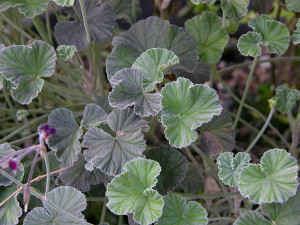Pelargonium sidoides is a medicinal plant native to South Africa. Its common names include Umckaloabo and South African Geranium.
Contents
Uses
A 2013 Cochrane review found tentative evidence of benefit with Pelargonium sidoidesfor the symptoms of the acute bronchitis, the common cold and acute rhinosinusitis; however, the quality of the evidence was low to very low.
Benefits
Pelargonium sidoides was first promoted in Britain in 1897 as a treatment for tuberculosis. It was marketed by Charles Henry Stevens and was known as “Stevens’ Cure.” It fell out of favor when antibiotics were developed in the mid-1900s.
These days Pelargonium sidoides is used for upper respiratory infections including bronchitis,sinusitis, sore throat, tonsillitis, and the common cold. It is also used for sexually transmitted diseases including herpes and gonorrhea. Other uses include treatment of dysentery and diarrhea.
Cautions
Umckaloabo extract is LIKELY SAFE when taken by mouth for up to 3 weeks. There is not enough information to know if it is safe when taken for longer periods of time. Some people who take it can experience stomach upset. Some people have had allergic reactions to Umckaloabo.
Special Precautions & Warnings:
Pregnancy and breast-feeding: There is not enough reliable information about the safety of taking Umckaloabo if you are pregnant or breast-feeding. Stay on the safe side and avoid use.
Children: Umckaloabo is POSSIBLY SAFE when taken by mouth for up to one week. There is not enough information to know if it is safe when taken for longer periods of time.
“Auto-immune diseases” such as multiple sclerosis (MS), lupus(systemic lupus erythematosus, SLE), rheumatoid arthritis (RA), or other conditions: Umckaloabo might cause the immune system to become more active. This could increase the symptoms of auto-immune diseases. If you have one of these conditions, it’s best to avoid using Umckaloabo.
Bleeding disorders: A chemical in Umckaloabo, called coumarin, might slow blood clotting and increase bleeding. In theory, Umckaloabo might make bleeding disorders worse.
Surgery: A chemical in Umckaloabo, called coumarin, might slow blood clotting. In theory, Umckaloabo might increase the risk for bleeding during surgical procedures. Stop using Umckaloabo at least 2 weeks before a scheduled surgery.
Interactions
Medications that decrease the immune system (Immunosuppressants) interacts with UMCKALOABO
South African geranium might increase the immune system. Taking South African geranium along with some medications that decrease the immune system might decrease the effectiveness of medications that decrease the immune system.
Some medications that decrease the immune system include azathioprine (Imuran), basiliximab (Simulect), cyclosporine (Neoral, Sandimmune), daclizumab (Zenapax), muromonab-CD3 (OKT3, Orthoclone OKT3), mycophenolate (CellCept), tacrolimus (FK506, Prograf), sirolimus (Rapamune), prednisone (Deltasone, Orasone), corticosteroids (glucocorticoids), and others
Other names
African Geranium, EPs 7630, Geranien, Geranio Sudafricano, Geranium, Géranium d’Afrique, Géranium d’Afrique du Sud, Géranium du Cap, Geranium Root, Ikhubalo, Icwayiba, i-Yeza lezikali, Kalwerbossi, Khoaara e Nyenyane, Pelargonien, Pelargonio Sudafricano, Pelargonium Root, Pélargonium d’Afrique, Pélargonium du Cap, Pelargonium sidoides, Rabas, Rabassam, Racine de Géranium, Racine de Pélargonium, Umckaloabo, Uvendle
Reference
Source: WebMD, http://www.webmd.com/vitamins-supplements/ingredientmono-1135-umckaloabo.aspx?activeingredientid=1135&activeingredientname=umckaloabo
Wikipedia, https://en.wikipedia.org/wiki/Pelargonium_sidoides

